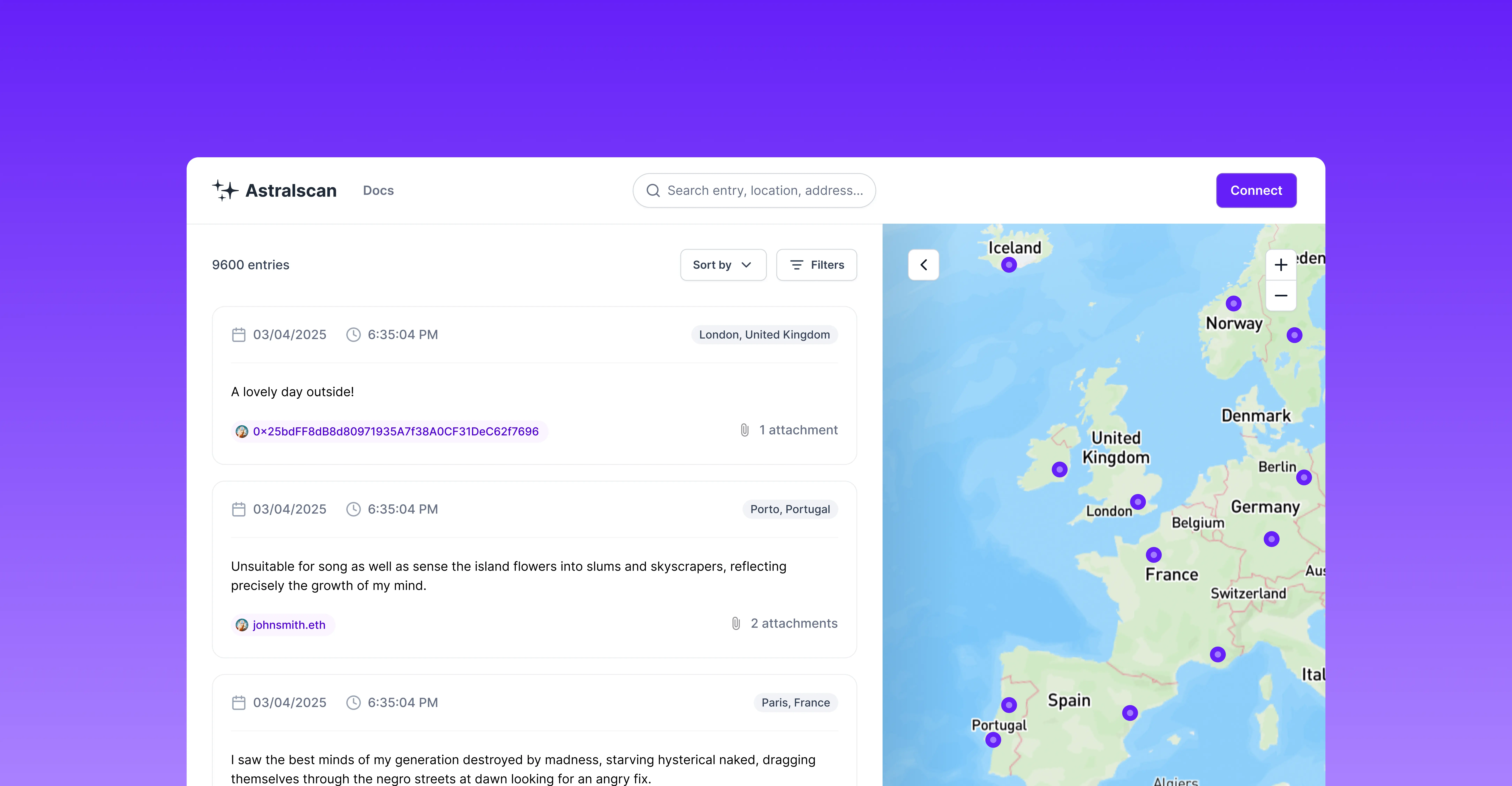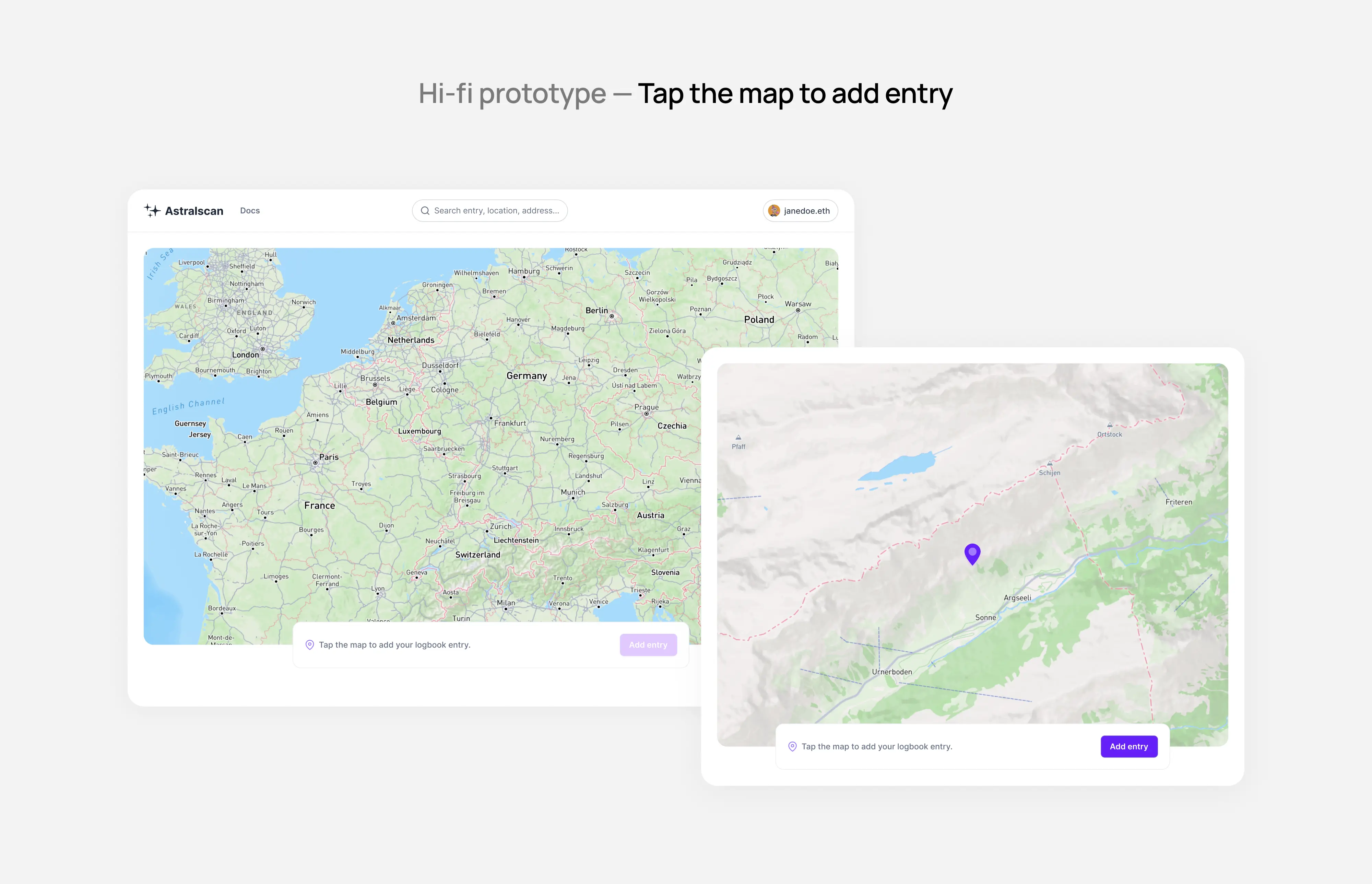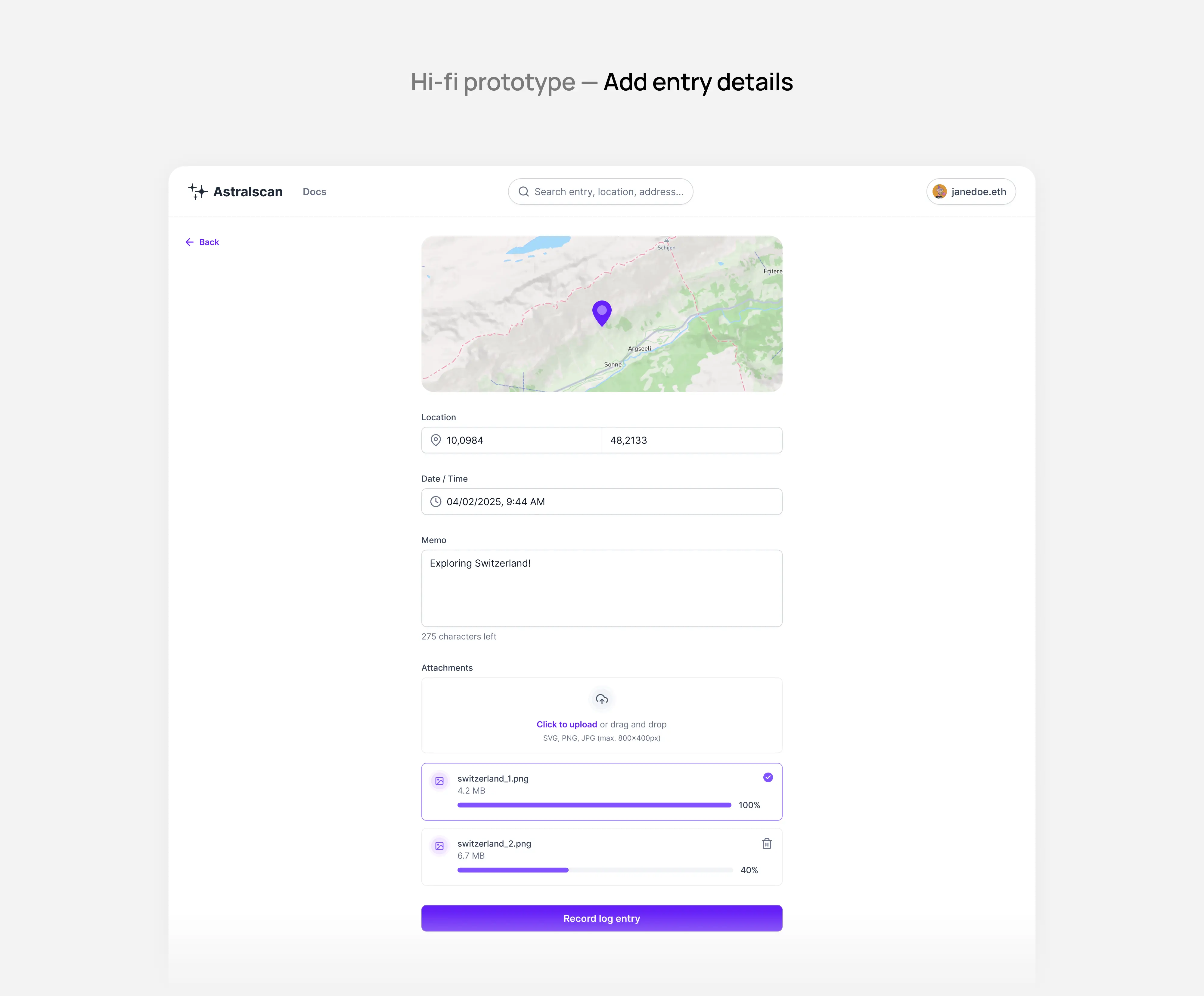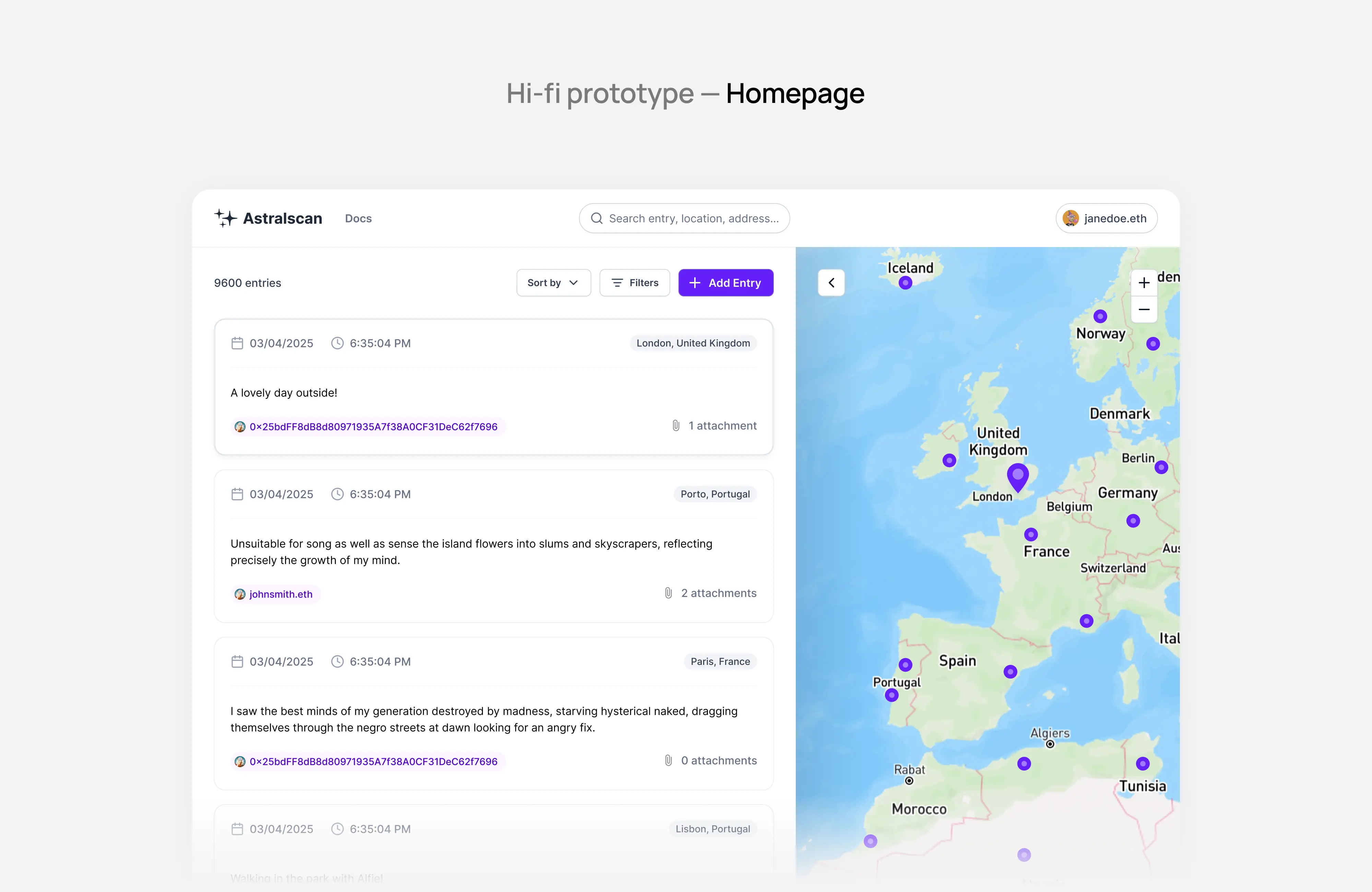Astralscan
Client
Astral
Role
Product Design
Duration
March 2025 - ongoing

Overview
Astralscan is a block explorer built for the Astral Protocol, a spatial extension of the decentralized web. It allows users to explore, verify, and interact with location-based attestations recorded onchain. The goal is to make the where of web3 as verifiable and accessible as the what and when.
This project was born from a serendipitous collaboration during my time at Kernel, a community of web3 builders. There I met John from the Astral team, became fascinated with their vision, and volunteered to help bring spatial attestations to life through a better user experience.
Problem
Astral had already developed a prototype called Logbook, which allowed users to create spatial attestations directly on the app. However, it lacked the ability to:
- Visualize attestations across time, space, or chain
- Filter or browse attestations in a meaningful way
There was a clear need for a new interface designed to both visualize and organize spatial attestations and support future development through a unified component system.
Goals
- Design a map-based and list-based explorer for attestations across different chains
- Build a reusable and scalable component library
- Enable users to explore, add, and verify entries with location, media, and metadata
- Improve visual hierarchy and usability
- Lay the groundwork for features like filters, tags, and sharing

Solution
The new app, Astralscan, will allow people to:
- View all attestations on a global map
- Browse entries in a sortable and filterable list view
- Click on entries to see details, including:
- Location, date/time
- Media (e.g. image proofs)
- Description or memo
- Chain metadata
- Create new attestations with a smoother, more guided UX

Current Status & Next Steps
This is an ongoing project. I’m currently:
- Expanding the entry detail view to show additional metadata
- Improving loading/empty states
- Finalizing and documenting the component library
